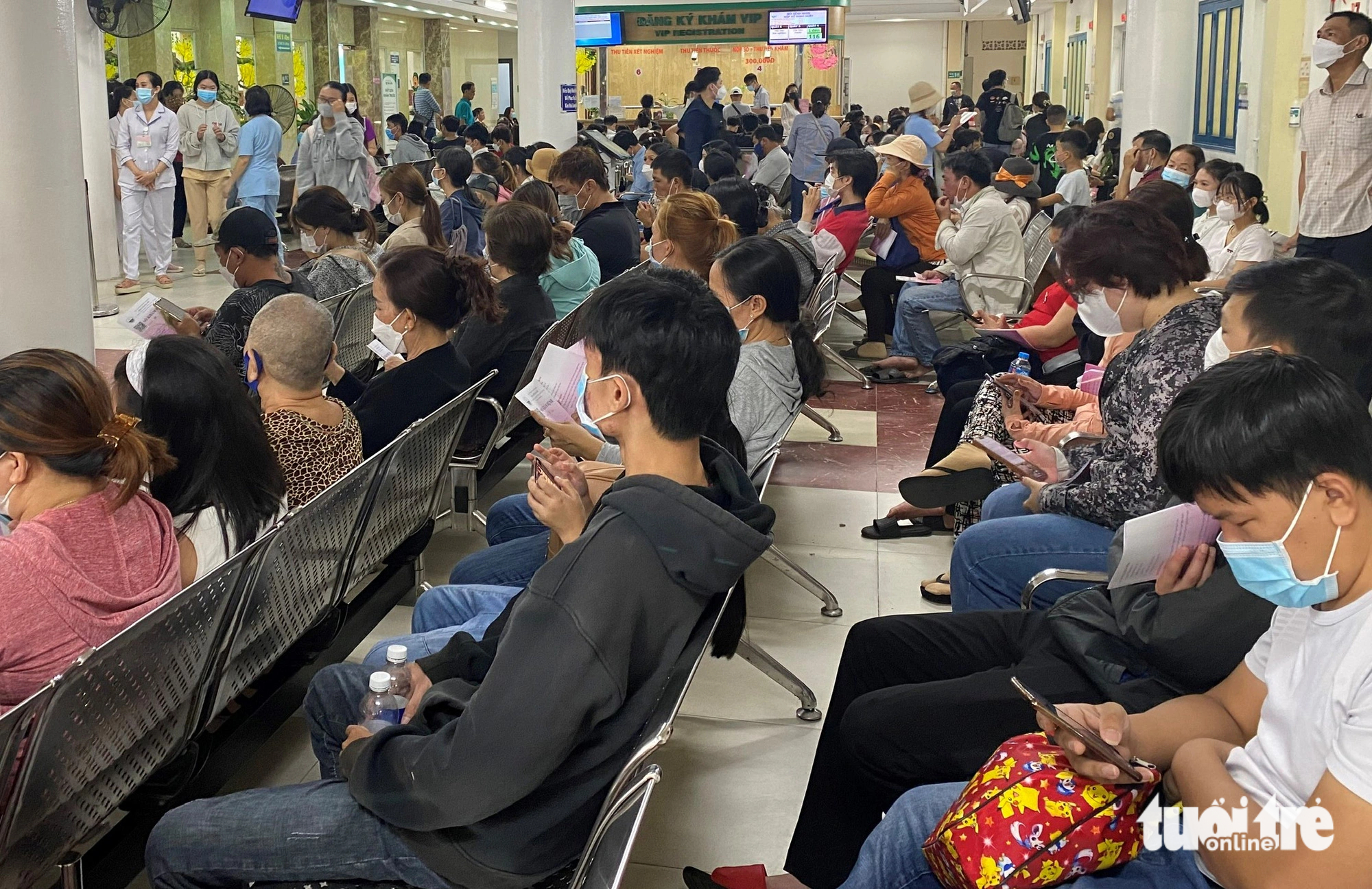
A doctor provides consulting for a patient at the Institute of Mental Health at Bach Mai Hospital in Hanoi. Photo: D. Lieu / Tuoi Tre
Anxious to avoid the stigma or cost of hospital treatment, many people suffering from anxiety, depression or stress disorders are turning to digital therapy platforms or social media-based services — often to find themselves worse off, emotionally and financially.
Search for help meets with risk
Typing phrases like 'mental healing' or 'psychological therapy' into Vietnamese social media yields hundreds of groups, some with over 100,000 members.
In these platforms, anonymous users share their struggles and are often approached by self-proclaimed therapists offering support.
One such group, ‘Tri lieu tam ly: tram cam, roi loan lo au’ (Psychological Therapy: Depression and Anxiety), hosts more than 60,000 members.
Every day, dozens of new posts attract offers of help — many from individuals with no verified training.
A Hanoi-based user, who identified as a ‘Reiki Master,’ claimed to hold international certification that is unrecognized in Vietnam and recommended 'past-life regression hypnosis' to treat trauma.
The therapy was quoted at VND55 million (US$2,120) for a three-month online package, with installment plans available.
Questionable qualifications
Another widely promoted Facebook page, ‘Tam ly tri lieu - K.’ (Psychological Therapy - K.), quoted consultation fees starting at VND250,000 ($9.6) for the first hour, with an added VND100,000 ($3.9) for each additional 30 minutes.
The service promised scientifically backed therapy methods like cognitive behavioral therapy (CBT) and motivational therapy, but only provided limited background on its practitioners — one holding only a bachelor’s degree and another reportedly holding a master’s degree from 2022.
According to Vietnamese regulations, even those with psychology degrees may only offer therapy under supervision within licensed institutions — not as independent providers.
Cross-border ‘healers’
The trend has extended beyond Vietnam’s borders.
On the Threads platform, a Vietnamese user based in Switzerland with over 60,000 followers offers one-on-one 'healing sessions' for fees ranging from VND2.3 million ($88.6) to VND15 million ($578), citing degrees from the University of Geneva and a French certificate in applied psychology.
However, Swiss regulations require at least a master’s degree and a professional license to practice as a therapist.
When questioned online about her credentials, the individual defended her title, claiming Vietnam does not require a master’s degree to be called a 'therapist.'
Mental health gap
Vietnam’s growing mental health crisis is well documented.
According to the Ministry of Health, nearly 15 million people — or 14.9 percent of the population — suffer from at least one of 10 common mental health disorders.
Around three million are adolescents, a group particularly vulnerable to long-term emotional damage.
The COVID-19 pandemic, climate anxiety, economic instability, and global conflict have all contributed to the rise in cases.
Yet access to qualified care remains low — only 29 percent of those with mental health conditions and one-third of those with depression have received proper treatment.
This lack of access has helped fuel a black market for unregulated therapy, where vulnerable patients gamble their well-being on unverified methods and unqualified individuals.
Emotional harm
Some who seek help from such providers report severe consequences.
T.K., a Vietnamese woman living in Australia, was diagnosed with bipolar depression and began sessions with a self-described 'coach' she found via YouTube and Instagram.
She paid VND3 million ($115.6) per month for sessions that included meditation instructions and motivational talks — but no clinical guidance.
“The coach inserted their own past trauma into my story, blamed me for my illness, and emotionally berated me,” she said.
“It took me six months to recover from the psychological harm they caused.”
The coach reportedly offers healing through astrology, tarot, and energy work — none of which are recognized forms of psychological therapy in clinical settings.
With few regulatory mechanisms and a large, underserved population, experts warn that the proliferation of unqualified mental health services in Vietnam risks not only exploitation, but serious long-term damage to those seeking care.



Max: 1500 characters
There are no comments yet. Be the first to comment.